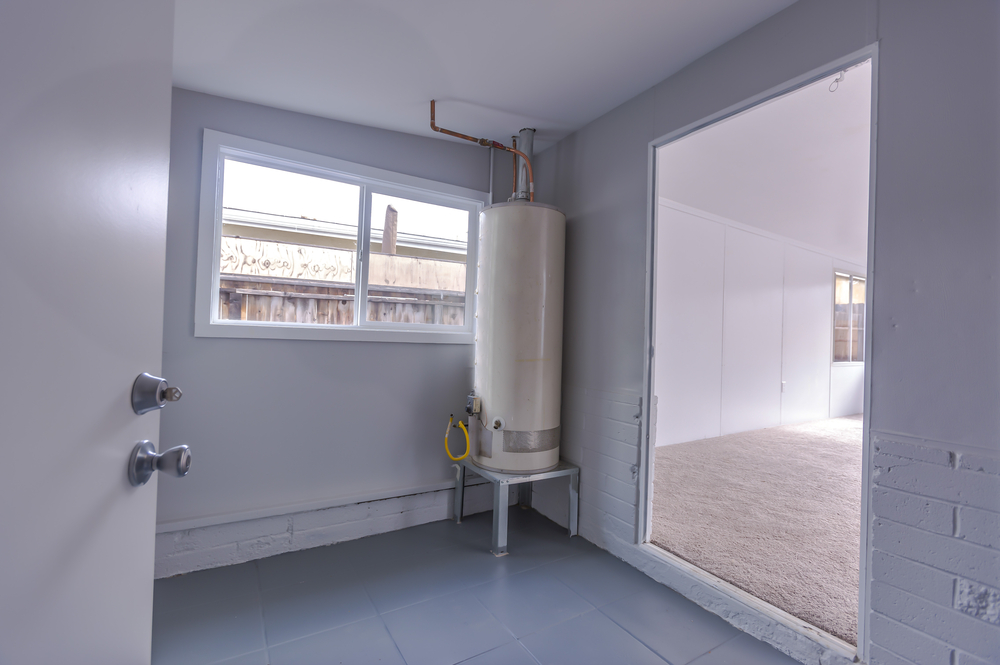
- Post author:admin
- Post published:January 3, 2023
- Post category:A Better Plumber Blog
- Post comments:
Key Takeaways:
- Most people only think about their water heater very often once it stops working properly, but you can improve your water heater’s efficiency with little effort.
- Saving energy is important for many reasons, including reducing your monthly utility bills. Home water heaters are responsible for a lot of energy consumption in the average American household, accounting for about 20% of your home’s total energy use.
- You can use a few hacks to improve your water heater’s efficiency and thus lower your energy bills, such as installing a water heater blanket or adjusting the temperature setting.
- Fixing leaks, draining the sediment from the tank, upgrading to a more efficient model, and insulating your pipes are also ways to boost efficiency.
- Regular maintenance tasks like flushing out the tank twice a year are important for preventing future problems and keeping your unit from working harder than necessary.
Most people only think about their water heater once it stops working properly. But did you know you can improve your water heater’s efficiency without too much effort? Saving energy is important for many reasons. Not only does it help the environment, but it can also save you bucks on your monthly utility bills. It’s no secret that water heaters are responsible for a lot of energy consumption in the average American household. In fact, water heaters account for about 20% of your home’s total energy use! If you’re looking to reduce your monthly energy bill, making small tweaks to your water heaters can save you much money in the long run. Here are eight tips by A Better Plumber & Sewer to help improve your water heater’s efficiency and lower energy costs.
Home Water Heaters: How Do They Work?
The water heater, otherwise known as the water heater or hot water tank, is a machine that helps to create hot water for your home by converting energy into heat. There are various types and models of water heaters available today, but they all use a fuel source (natural gas, propane, electricity, solar power, etc.) to heat the water inside a tank. The tank is then insulated to help keep the water hot until it’s needed.
When you want hot water, the first thing that happens is cold water enters the tank through a supply line. The cold water then sinks down to the bottom of your tank, where it’s heated by either an electric heating element or a gas burner (depending on your model). As the water is heated, it rises to the top of the tank, where it’s stored until you need it. When you turn on your hot water faucet, the hot water is drawn from the top of the tank and sent to your faucet.
You can take a few steps to improve your home water heater’s efficiency and thus lower your energy bills.
Tips To Boost Your Water Heater Efficiency
1. Install A Water Heater Blanket
A water heater blanket is an insulating blanket that goes around your water heater. The blanket helps keep the heat in, so your water heater doesn’t have to work as hard (and use as much energy) to heat the tank. Most blankets are fiberglass and fit snugly around the outside of the tank. You can find them at most home improvement stores.
2. Adjust The Temperature Setting
If you have a gas water heater, a thermostat controls the water temperature in the tank. You can adjust this setting to lower the temperature and save energy.
Most showers in the United States are 106 degrees. If you set your water heater’s thermostat to 120, you will have more than enough heat, and it will save energy. Setting it to lower to 120 degrees is unnecessary, and reducing your shower temperature is an easy way to conserve energy—resulting in a 6-10% decrease in power usage for your water heater.
Suppose your water heater has a thermostat that doesn’t show actual temperature settings. The “warm” setting is usually the more efficient (and safer) option.
3. Fix Leaks
A leaky faucet or shower head can waste hot water and increase energy bills. If you leak, it’s important to fix it right away. You may be able to do this yourself, or you may need to hire a plumber.
4. Drain The Sediment From The Tank
Over time, sediment can build up in the bottom of your water heater tank. This sediment can insulate the heating element and prevent it from working properly. Draining the tank’s sediment can improve your water heater’s efficiency.
5. Upgrade To A More Efficient Water Heater
If your water heater is over ten years old, it may be time to upgrade to a more efficient model. Newer water heaters are much more energy-efficient than older models. When you’re ready to buy a new water heater, choose an energy-efficient model.
6. Insulate Your Water Pipes
An easy way to make your water heater more efficient is by insulating your pipes. You can significantly reduce heat loss in your home by researching how to properly measure and install insulation on your hot and cold water pipes.
If you own an older water heater, insulate it with a water heater insulation blanket kit. Most newer models have built-in insulation and may not require this extra level of protection. To learn more about properly insulating your water heater, read Energy Saver Guide from energy.gov.
7. Install Efficient Shower Heads And Faucet Attachments
You can reduce the amount of hot water you use by replacing current plumbing fixtures with more efficient alternatives. Low-flow fixtures help Reduce how many gallons per minute become wastewater. Shower heads and faucet aerators are easy to replace and don’t cost much. The difference in energy consumption is well worth it.
8. Drain The Tank
You should flush your water heater out two times a year to ensure its efficient function. Always consult your owner’s manual before beginning this process. Remember to disconnect the energy source, close the water supply valve, and attach a hose from the drain valve outside your home–such as a storm drain or large five-gallon bucket.
If you need more specific instructions, refer to your owner’s manual. If you feel unsure during the process, contact a professional plumber rather than try to flush it out yourself.

Regular Home Water Heater Maintenance Is Important
Yep, if you want your water heater to have a long, productive life, you’ve got to treat it right by performing regular maintenance tasks. These will keep your unit from working harder than necessary and prevent future problems.
Looking For Water Heater Repairs In Arlington Heights? Let Us Help!
A Better Plumber And Sewer is the company to call when you require a hot home water heater installation or any maintenance, repairs, and replacements in Arlington Heights. Our uniform service professionals will thoroughly assess your needs and advise you on the best unit to prevent further plumbing problems in your home or business. Learn more about our current water heater and sewer services by calling us today, or request a free quote now!







